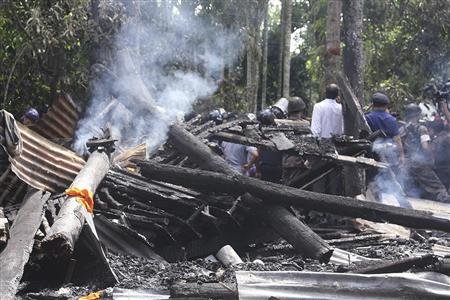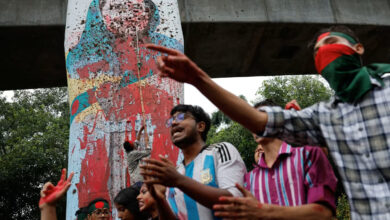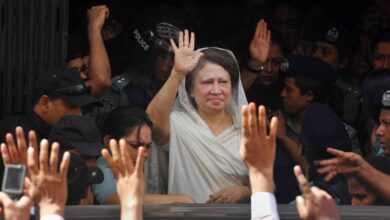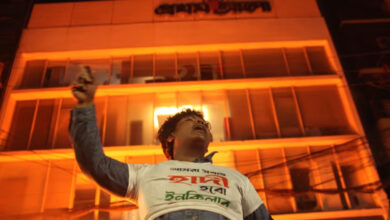
Bangladesh's Supreme Court sentenced an Islamist leader to death for war crimes during the 1971 war of independence on Tuesday, overturning an earlier life sentence imposed by a tribunal and triggering violent protests by his supporters.
The war crimes tribunal found Abdul Quader Mollah, assistant secretary general of the Jamaat-e-Islami party, guilty of murder, rape and torture on 5 February.
The life sentence imposed at the time also triggered protests by people hoping he would get the death penalty. In response, parliament amended a law to allow the state to appeal against any verdict or sentence passed by the tribunal.
Bangladesh has been hit in recent months by a wave of violent protests over war crimes convictions, presenting the government with a security and credibility challenge ahead of polls early next year.
More than 100 people have been killed in protests and counter-protests since January, when the tribunal delivered its first verdict.
In July, a court declared Jamaat-e-Islami illegal, effectively banning it from the election. Six party leaders have been convicted of various crimes in connection with the war.
Mollah's party opposed Bangladeshi independence from Pakistan in the 1971 war but it denies accusations that its leaders committed murder, rape and torture.
Jamaat activists skirmished with police in several towns, including the port city of Chittagong, and Khulna, on Tuesday after the sentence was revised. Five police were wounded in Chittagong when activists torched a police car and exploded crude bombs.
Defence attorney Abdur Razzak said the sentence was politically motivated. "He is a victim of sheer injustice. We will file a review petition within 30 days of receiving the full verdict," he said.
Attorney General Mahbube Alam said a "review petition" was not an option.
The war trials have angered Islamists and the main opposition Bangladesh Nationalist Party (BNP), who call them a politically motivated bid to persecute the leadership of Jamaat. The government has denied the charges.
The tribunal has so far convicted three other Jamaat leaders to death and sentenced one to life in jail.
Several Jamaat leaders and two from the BNP are still on trial at the tribunal, which is not endorsed by the United Nations.
The New York-based Human Rights Watch group has said the tribunal's procedures fall short of international standards.




